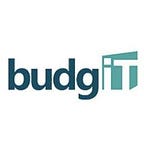Nigeria’s 2020 Petroleum Industry Bill: the Fiscal Framework and Governance Provisions.
Few weeks ago, experts and stakeholders in the extractive sector shared their insights on the critical aspects of the 2020 Petroleum Industry Bill (PIB) at a webinar held by BudgIT Nigeria. The webinar which lasted for about two (2) hours focused specifically on the fiscal framework of the PIB, the governance aspect as well as its provisions for Host communities.
The Petroleum Industry Bill (PIB) is an omnibus law meant to regulate the entire sphere of the Petroleum industry and repeal all current existing oil and gas legislation. It is expected to provide a framework for the fiscal, governance, and institutional aspects of the industry. To put it more succinctly, the bill is meant to: create an efficient and effective governing institution; create a commercially oriented and profit-driven national petroleum company; promote transparency, good governance and accountability; and foster a business environment conducive for petroleum operations.
Dr. Ekpen Omonbude, an Energy & Mining Economist who spoke on the fiscal aspect of the PIB shared some valuable insights at the webinar. He stated that while the objectives of the fiscal part of the bill seem well-intentioned, they seem not to be optimal.
“Taking a critical look at the bill, one can deduce that the production sharing system is straightforward but the petroleum royalty system could be simpler” Ekpen added.
The envisaged fiscal framework somewhat achieves its goal of progressivity, but not through the additional chargeable tax and not in periods of sustained low oil prices. It, however, returns the favour when companies increase profitability through cost-efficiency. The progressive tax instrument (i.e. the additional chargeable tax) is unnecessarily complicated and it relies on increments from royalty by price to raise the level of fiscal burden.
Speaking on the governance provisions of the petroleum industry bill, Mr. Israel Aye, Senior Partner at Primera Africa Legal, stated that the governance and institutions aspect of the bill focuses on the creation of efficient and effective governing institutions with clear and separate roles for the petroleum industry, while the administration aspect focuses on transparent and efficient administration as well as effective management of exploration alongside production operations.
The commercial part of the governance aspect stated specifically that the new Nigerian National Petroleum Corporation Limited (NNPC Limited) will be registered within six (6) months, however, it will take twenty-four months to determine assets, interests, and liabilities. The Minister is responsible for promoting an enabling environment for investment with respect to formulating, monitoring, and administering government policy and exercising general supervision over the affairs and operations. Meanwhile, NNPC Limited is responsible for carrying out petroleum operations on a commercial basis and also engaging in the development of renewable resources in competition with private investors.
Taking a critical look at the provisions in the PIB for Host communities, the bill states that an operator will set up a trust fund for a Host community for which it either mines oil or holds designated facilities. This shall be within twelve (12) months of an existing or a new lease, and failure to do this can result in revocation of the operator’s license. The bill also states clearly that in case of an act of vandalism, sabotage or any other occurence that causes damage to the petroleum and designated facilities–or disrupts production activities within the host community–the community shall forfeit its entitlement to the extent of the cost of repairs that resulted from the damage.
In his concluding statement, Dr. Dauda Garuba noted that the transparency and accountability component of the bill may be very robust for some in their analysis while it may not be same for others. However, it should be seen beyond the money but rather based on effective service delivery.
